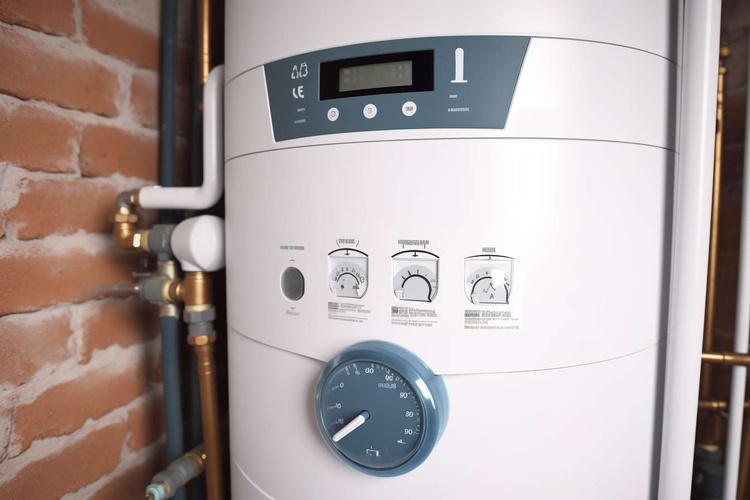Understanding Water Heaters and Boilers: An Efficiency Guide
Navigating the world of water heating systems can be overwhelming with numerous technologies promising energy savings and improved performance. From traditional tank models to innovative tankless solutions and advanced boiler systems, understanding the options available can help homeowners make informed decisions that balance initial investment with long-term efficiency and comfort.

Water heaters and boilers are essential components in modern homes, providing comfort and convenience through reliable hot water and heating. As energy costs rise and environmental concerns grow, understanding the latest technologies and efficiency options becomes increasingly important. This comprehensive guide explores modern water heating solutions, their benefits, and how to select the most appropriate system for your needs.
How to Choose an Efficient Water Heater
Selecting the right water heater involves evaluating several factors including household size, hot water demand, available space, and energy sources. Conventional storage tank water heaters remain popular due to their reliability and lower upfront cost, but they continuously heat water regardless of usage. Tankless water heaters, while more expensive initially, provide hot water on demand and can reduce energy consumption by 24-34% in homes that use less than 41 gallons of hot water daily.
When shopping for an efficient water heater, look for the Energy Factor (EF) rating—higher numbers indicate better efficiency. Also consider the First Hour Rating (FHR) for storage tanks, which measures how much hot water the heater can deliver during a high-demand hour. For larger households, a system with higher FHR ensures adequate hot water supply during peak usage times.
Advanced Boiler Technology Innovations
Modern boilers have evolved significantly from their predecessors, offering remarkable improvements in efficiency and performance. Condensing boilers represent one of the most significant advancements, achieving efficiency ratings of 90-98% compared to 70-80% for conventional models. These systems extract additional heat from exhaust gases that would otherwise be wasted, by condensing water vapor in the exhaust and capturing its latent heat.
Smart controls have also revolutionized boiler operation. Modulating boilers can adjust their output based on actual heating demands rather than operating at full capacity, while weather-compensating controls adjust water temperature based on outdoor conditions. These technologies ensure optimal performance while minimizing energy consumption.
Zoning capabilities allow modern boilers to heat different areas of a home independently, providing customized comfort and preventing energy waste in unoccupied spaces. This targeted heating approach can reduce energy consumption by up to 30% compared to traditional single-zone systems.
Innovative Energy Saving Solutions for Water Heating
Beyond traditional technologies, several innovative solutions are reshaping the water heating landscape. Heat pump water heaters use electricity to move heat rather than generate it directly, achieving efficiency rates 2-3 times higher than conventional electric water heaters. While they have higher upfront costs, their energy savings can recover this investment within 2-3 years of operation.
Solar water heating systems can supplement conventional water heaters, using renewable energy to preheat water before it enters the main heating system. In sunny climates, these systems can provide 50-80% of a household’s hot water needs, dramatically reducing energy consumption and operating costs.
Combination systems that integrate space heating and water heating functions into a single unit are gaining popularity. These systems eliminate redundancy and can improve overall efficiency by 10-30% compared to separate systems. Combi boilers, which provide both space heating and on-demand hot water, are particularly popular in space-constrained environments.
Maintenance Practices for Optimal Performance
Proper maintenance significantly extends the lifespan and maintains the efficiency of water heating systems. For conventional water heaters, regular flushing removes sediment buildup that can insulate the tank bottom and reduce heating efficiency. Experts recommend flushing storage tanks annually to maintain optimal performance.
Boiler systems benefit from annual professional inspections to check combustion efficiency, clean heat exchangers, and ensure proper operation of safety controls. Maintaining proper water chemistry prevents scale formation in boilers and piping, which can reduce heat transfer efficiency by up to 15% if left unchecked.
Checking and replacing anodes rods in conventional water heaters every 3-5 years prevents tank corrosion and extends service life. Similarly, inspecting pressure relief valves annually on both water heaters and boilers ensures proper safety function and prevents potentially dangerous pressure buildups.
Water Heating System Costs and Comparison
Water heating systems vary significantly in both initial cost and long-term operational expenses. Understanding these differences helps homeowners make informed decisions based on their specific circumstances and budget constraints.
| System Type | Average Installation Cost | Annual Operating Cost | Expected Lifespan |
|---|---|---|---|
| Conventional Storage Tank | $700-$1,500 | $200-$500 | 8-12 years |
| Tankless Water Heater | $1,000-$3,000 | $80-$300 | 15-20 years |
| Heat Pump Water Heater | $1,200-$3,500 | $100-$200 | 10-15 years |
| High-Efficiency Boiler | $3,500-$8,000 | $300-$700 | 15-30 years |
| Solar Water Heating | $3,000-$10,000 | $50-$100 | 20+ years |
Prices, rates, or cost estimates mentioned in this article are based on the latest available information but may change over time. Independent research is advised before making financial decisions.
While conventional systems offer lower upfront costs, high-efficiency options typically provide better long-term value through reduced energy consumption and longer lifespans. For example, a tankless water heater might cost twice as much initially as a conventional model but can last twice as long and use 30% less energy, resulting in significant lifetime savings.
Selecting the Right System for Your Needs
Choosing between water heaters and boilers depends on several factors including climate, existing infrastructure, and personal preferences. In colder regions, boilers offer advantages through their ability to provide both space heating and hot water. Their hydronic heating delivers consistent, comfortable warmth without the dryness associated with forced-air systems.
For homes in milder climates without existing hydronic infrastructure, dedicated water heaters often represent the most cost-effective solution. Tankless models work particularly well in smaller households or as point-of-use solutions for remote fixtures, while heat pump water heaters excel in warm, humid environments where they can extract heat efficiently from ambient air.
When evaluating options, consider not only purchase and installation costs but also projected energy consumption, maintenance requirements, and expected lifespan. The most economical choice often depends on household-specific factors including hot water usage patterns, available energy sources, and local utility rates.




